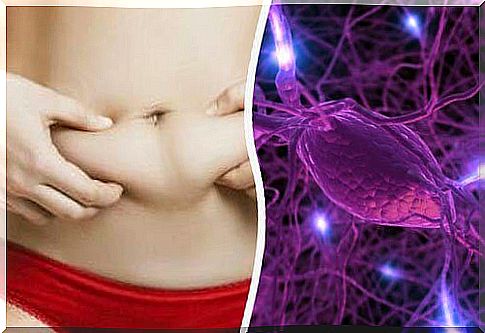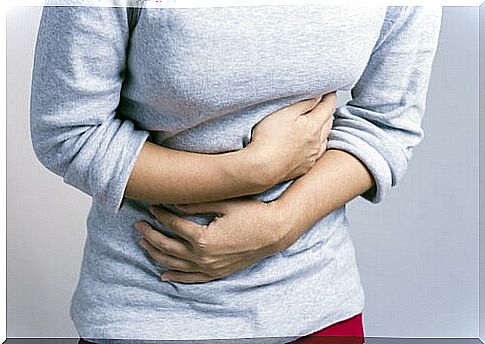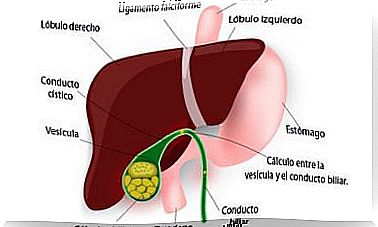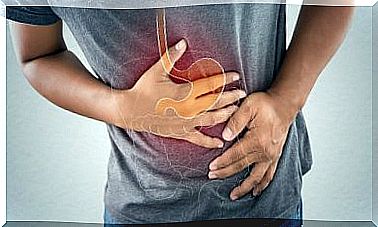10 Symptoms Of Hormonal Imbalance That You Should Attend To As Soon As Possible
Although they can respond to other causes, hormonal imbalance is a fairly frequent trigger of these conditions. However, with proper medical care we can treat you adequately.

Hormonal activity plays a very important role in the health of the entire organism, and is involved both physically and mentally. Therefore, suffering from a hormonal imbalance brings with it disorders that affect the quality of life, in one way or another.
It must be remembered that hormones are responsible for regulating body processes at different stages of the life cycle. For example, they are involved in the development of vital functions such as metabolism, growth, fertility and sexual desire. Among other things, they determine mood, body weight and a wide variety of processes that contribute to well-being.
The symptoms of a hormonal imbalance can be confused with common conditions, hence part of the importance of going to the doctor, having a complete check-up and obtaining an appropriate diagnosis. Next, we will review 10 symptoms that may indicate a hormonal disorder.
Hormonal imbalance symptoms you should know
As detailed in a publication on the Northwell Health portal , 80% of women have a hormonal imbalance. These imbalances are often caused by two hormones in particular: estrogen and progesterone. However, many common disorders are also associated with cortisol.
It is very important to know that the presence of these symptoms does not always indicate a problem of hormonal origin. Sometimes they can be the sign of other underlying diseases. Therefore, as long as you have one or more, it is best to go to the doctor to receive a more accurate diagnosis.
1. Persistent acne

Some women get acne breakouts before their menstrual period due to the hormonal changes that occur in that cycle. However, acne can persist beyond the premenstrual stage. If this happens, it is likely that there is an androgen disorder.
This group of sex hormones are predominantly male, although they are also secreted by women to a lesser extent. They stimulate excess fat production. This can get caught in the pores of the skin and form small comedones.
2. Sleep disorders
The decrease in progesterone levels just before the menstrual period makes it difficult for women to fall asleep. This alteration also usually occurs after giving birth, although insomnia is often attributed to the responsibilities of motherhood.
Progesterone has a relaxing function. Therefore, the decrease in your blood level can make you feel more restless and stressed.
3. Constant feeling of hunger
The continuous desire to eat is an obstacle to losing weight. Sometimes this constant feeling of hunger is caused by a hormonal disorder. It seems that, due to sleep deprivation, the levels of ghrelin, a hormone that produces the sensation of hunger, increase.
Also, insomnia decreases the production of the hormone leptin, responsible for regulating appetite. Therefore, too much anxiety to eat can be the consequence of a hormonal imbalance caused by poor sleep.
4. Mood swings and depression
Much of the female population experiences mood swings just before menstrual periods, during pregnancy, and at menopause.
The hormonal alterations that occur in these periods increase stress, depression and other negative emotions that, in other situations, would be handled with more equanimity.
5. Headaches and migraine

At certain times in the menstrual cycle, hormonal changes can cause uncomfortable headaches and migraine episodes. If both problems persist, it is best to consult a doctor to investigate their origin.
6. Vaginal dryness
Vaginal dryness is a clear indication of the imbalance in estrogen levels that occurs upon reaching menopause. This symptom increases the risk of vaginal infections and impairs sexual life.
7. Digestive problems

Cortisol, a hormone related to stress, can cause various physical reactions depending on each organism. Thus, some people may feel that their muscle tension increases and that they have a headache. Others, on the other hand, will only be in a bad mood.
However, some may suffer from digestive problems such as bloating and stomach aches, as well as constipation. Among these people are patients with irritable bowel syndrome, who have abnormal levels of serotonin.
8. Constant fatigue
Tiredness is common when there is work overload, worry, or too much physical activity. However, fatigue, understood as chronic tiredness, can be the consequence of a hormonal imbalance and, specifically, hypothyroidism. That is, the disorder associated with a lack of thyroid hormones. This condition can lead to sudden weight gain, as these hormones regulate metabolism.
9. Breast changes
High levels of estrogen increase breast tenderness and pain. In addition, in some cases they lead to the formation of tumors, fibroids and cysts. Hence, periodic examination of the breasts is essential. Performing a self-examination is another important recommendation with a view to the early detection of lumps or any other irregularity.
10. Loss of libido
A hormonal imbalance can be the cause of decreased sexual desire in women. Loss of libido usually occurs at menopause, due to low levels of estrogen.
Definitely
There are many symptoms that can result from an alteration in hormonal activity. Although many are regulated without the need for treatment, in other cases medical intervention is necessary. Therefore, if they are severe or persistent, professional care should be sought.








